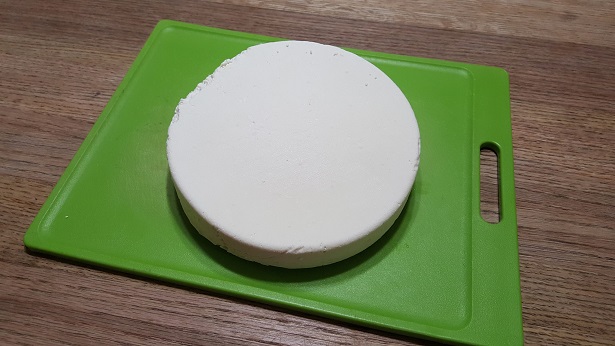Ok, so I made my first cheese, queso fresco, and I just have a few general questions.
First of all, the queso fresco is pretty bland, I've bought queso fresco before, and never remember it being this bland. Now that it is a week old, it tastes much better, and when I eat it with salty crackers it actually tastes really good. I have over a pound of it left. What will happen if I age it for a few weeks? Will it spoil or??? I have handled it a couple times with my bare hands. Can I melt it into some sort of dip?
I plan to make mozzarella this weekend, using no citric acid, but instead thermophillic B per the recipe I've found. Do I really need neoprene gloves? I've watched some videos of people stretching the curd, and gloves seem kind of extreme?
What kind of containers will I need to place my cheese in for aging? Should I worry about unwanted mold?
I have the book "Artisan Cheesemaking at Home by Mary Karlin", is it worth buying another, such as "Mastering Artisan Cheesemaking"?
Thanks in advance!

First of all, the queso fresco is pretty bland, I've bought queso fresco before, and never remember it being this bland. Now that it is a week old, it tastes much better, and when I eat it with salty crackers it actually tastes really good. I have over a pound of it left. What will happen if I age it for a few weeks? Will it spoil or??? I have handled it a couple times with my bare hands. Can I melt it into some sort of dip?
I plan to make mozzarella this weekend, using no citric acid, but instead thermophillic B per the recipe I've found. Do I really need neoprene gloves? I've watched some videos of people stretching the curd, and gloves seem kind of extreme?
What kind of containers will I need to place my cheese in for aging? Should I worry about unwanted mold?
I have the book "Artisan Cheesemaking at Home by Mary Karlin", is it worth buying another, such as "Mastering Artisan Cheesemaking"?
Thanks in advance!





































![Craft A Brew - Safale S-04 Dry Yeast - Fermentis - English Ale Dry Yeast - For English and American Ales and Hard Apple Ciders - Ingredients for Home Brewing - Beer Making Supplies - [1 Pack]](https://m.media-amazon.com/images/I/41fVGNh6JfL._SL500_.jpg)























